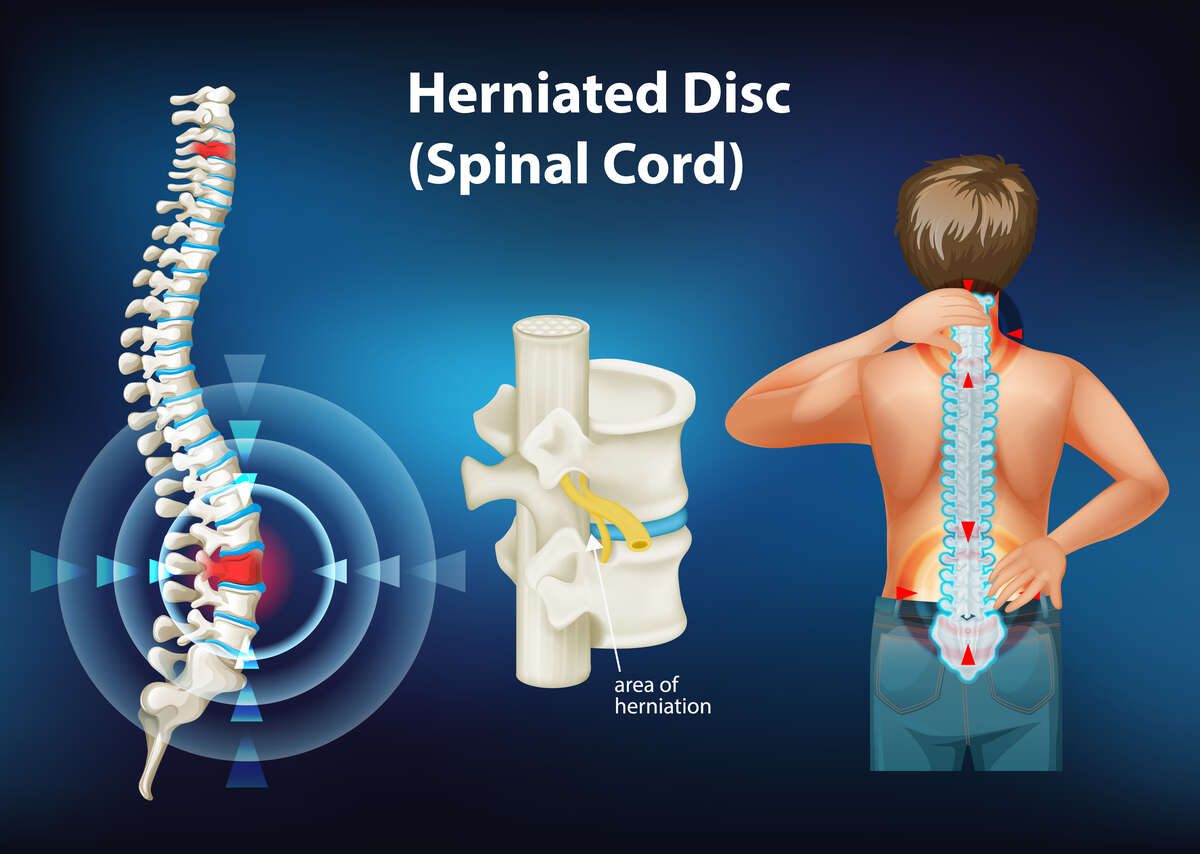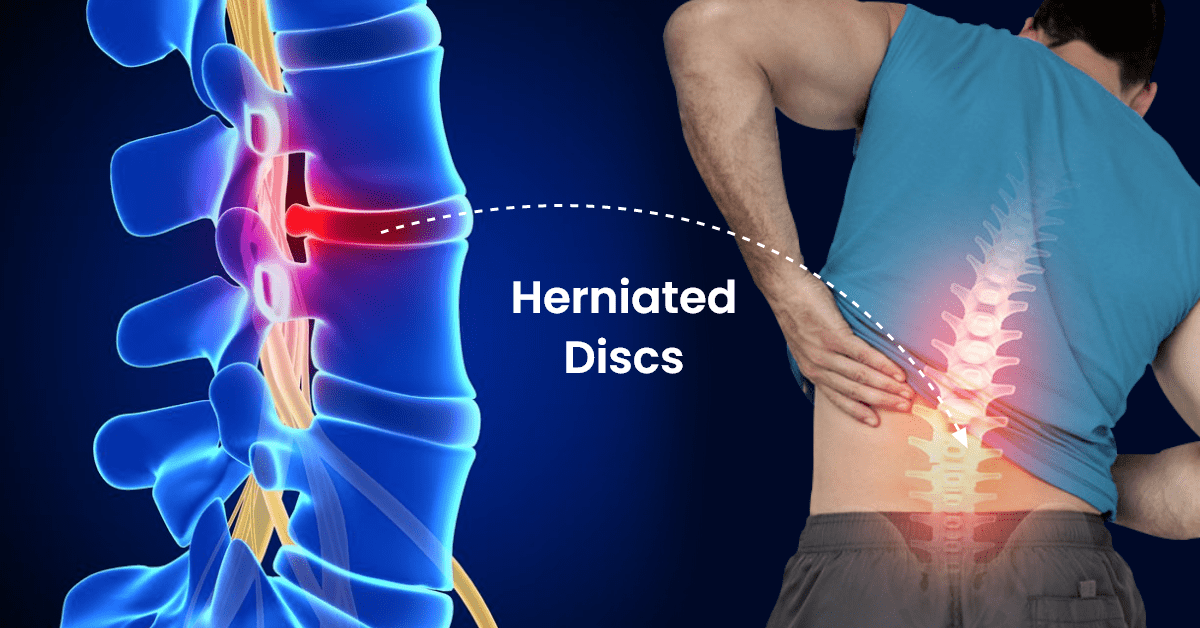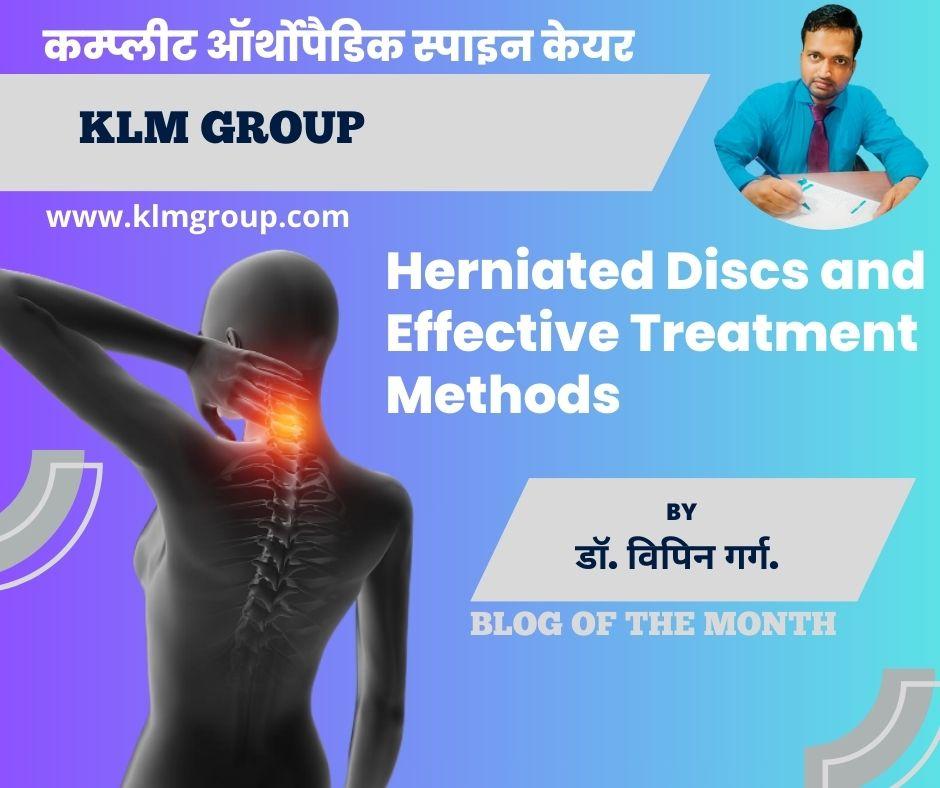Herniated Discs and Effective Treatment: In this informative guide, we will delve into the intricacies of herniated discs, exploring their causes, symptoms, and most importantly, effective treatment methods to provide relief. If you or someone you know is dealing with the challenges of a herniated disc, this article aims to empower you with knowledge about available treatment options. We can discuss more regarding “Herniated Discs and Effective Treatment”.
Introduction
Herniated discs, also known as slipped or ruptured discs, can be a source of significant discomfort and pain. Understanding the condition and the various treatment methods is crucial for those seeking relief and improved quality of life. We can discuss some more regarding “Herniated Discs and Effective Treatment”.
What is a Herniated Disc?
A herniated disc occurs when the soft center of a spinal disc pushes through a crack in the tougher exterior casing. This can irritate nearby nerves, leading to pain, numbness, or weakness in an arm or leg. While herniated discs can happen in any part of the spine, they are most common in the lower back.
Causes of Herniated Discs
Several factors contribute to the development of herniated discs:
Age: Discs tend to wear down and lose flexibility with age, making them more susceptible to herniation.
Genetics: Some people may have a genetic predisposition to developing herniated discs.
Occupation: Jobs that require repetitive lifting, pushing, pulling, or bending may increase the risk.
Weight: Excess body weight puts additional stress on the discs in the lower back.
READ More:

Symptoms of Herniated Discs
The symptoms of a herniated disc vary depending on the location and severity but may include:
Pain and discomfort: Often felt on one side of the body.
Numbness or tingling: In the affected area.
Weakness: Difficulty in lifting or holding items.
Radiating pain: Along the nerve pathway, such as down the leg or arm.
Effective Treatment Methods
1. Rest and Physical Therapy
Rest: Giving the body time to heal is crucial. Avoid activities that worsen the symptoms.
Physical Therapy: Targeted exercises can strengthen the back and core muscles, providing support to the spine.
2. Medications
Pain Relievers: Over-the-counter or prescription medications can help manage pain.
Muscle Relaxants: These can alleviate muscle spasms associated with a herniated disc.
3. Heat and Ice Therapy
Heat Packs: Applied to the affected area can help relax muscles.
Ice Packs: Reduce inflammation and numb the affected area.
4. Epidural Steroid Injections
Anti-Inflammatory Medications: Injected directly into the affected area to reduce inflammation and provide relief.
5. Surgery
Microdiscectomy: Involves removing the portion of the disc that is pressing on the nerve.

FAQs (Frequently Asked Questions)
What causes a disc to herniate?
Herniated discs can result from age-related wear and tear, genetics, occupational factors, and excess body weight. We can discuss few more regarding “Herniated Discs and Effective Treatment”.
How can I manage the pain at home?
Rest, over-the-counter pain relievers, and applying heat or ice packs can help manage pain at home.
Are herniated discs permanent?
While some cases may require ongoing management, many individuals find relief through conservative treatments, and the symptoms may improve over time.
Is surgery the only option for herniated discs?
No, surgery is typically considered after conservative treatments have failed to provide relief. Many people find improvement with non-surgical methods.
Can herniated discs be prevented?
Maintaining a healthy weight, practicing good posture, and engaging in regular exercise to strengthen the core and back muscles can contribute to disc health.
How long does recovery take after surgery?
Recovery times vary, but many people can resume normal activities within a few weeks of surgery, with full recovery taking several months.
Conclusion
Understanding herniated discs and the available treatment methods is crucial for those navigating the challenges of this condition. From conservative approaches like rest and physical therapy to more advanced options such as surgery, individuals can explore various avenues to find the most effective treatment for their unique situation.
Book Your Consultation
Website: https://tinyurl.com/yyzvwmck
Email: info@klmgrou p.org
Ph: 0751-4000721,Mob: 7804826825
Address: 12, Saraswati Nagar, University Road, Near Silver Estate, Thatipur,
Address Link: https://g.page/r/CQ0WqKLEXPWeEAE Powered By Argusdna

